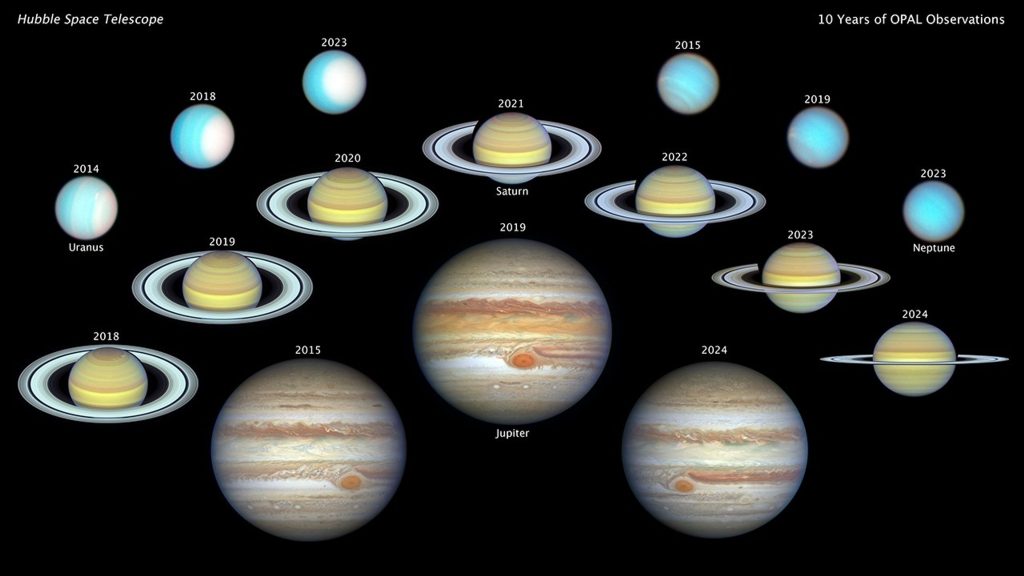From my teens to my twenties, from junior high school to graduate school to young professor, I excitingly followed the first reconnaissance of the outer solar system by the Pioneer and Voyager spacecraft. But the exploration isn’t over.
For the last decade, the Hubble Space Telescope has been systematically observing the colors and dynamics of the clouds of Jupiter, Saturn, Uranus, and Neptune. With resolution comparable to the Voyager flybys and sensitive to colors from ultraviolet to visible to near-infrared, Hubble is uniquely qualified for these observations.
Apparently, Uranus and Neptune appear blue due to atmospheric methane, which preferentially absorbs red light, except for the polar haze above Uranus pole (pointing rightward in the photographs below due to the planet’s large obliquity or tilt).

10 years of Hubble Space Telescope’s Outer Planet Legacy (OPAL) images. Click for a larger version. NASA, ESA, Amy Simon (NASA-GSFC), Michael H. Wong (UC Berkeley); Image Processing: Joseph DePasquale (STScI).

Thanks, Mark! I enjoy reading your posts as well.